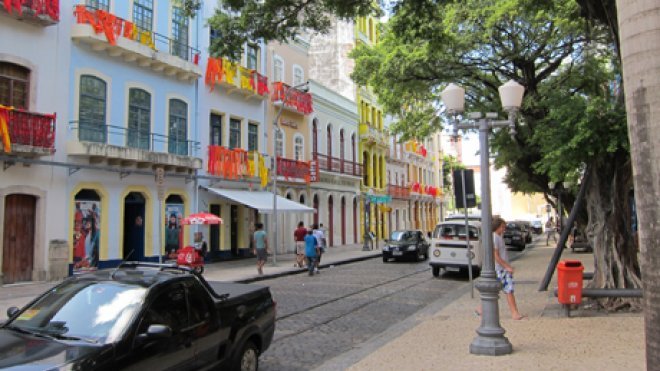As a Fulbright Scholar in Brazil, SAAHP’s Jeremy Wells to Study Community-Based Heritage Conservation
Wells will spend the Fall 2015 semester researching and teaching in Brazil’s historic port city of Recife

BRISTOL, R.I. -- Jeremy C. Wells, assistant professor of historic preservation in the School of Architecture, Art and Historic Preservation at Roger Williams University, has been awarded a research grant through the Fulbright U.S. Scholar Program to travel to the Federal University of Pernambuco in Brazil for the Fall 2015 semester.
In the city of Recife -- a major port on the Atlantic and one of Brazil's largest metropolitan areas -- Wells will focus primarily on research that aims to establish a new model in heritage conservation, in which community members work with historic preservation practitioners to jointly identify and preserve the heritage that is important to their community.
“In this model, instead of being the primary researcher, the heritage expert takes on a role as the facilitator and empowers local community members to help identify the heritage that they think is important in their community,” Wells says. “With this approach, the community members then become the team of researchers.”
While participatory research is common among other areas of preservation, Wells’ goal in applying this model to heritage conservation practice is to widen the overall community impact and to make heritage more relevant to more people.
“Traditional heritage conservation practice does not do a good job at understanding why historic places are important to the average community member,” Wells says. “It does a good job at understanding why places are important to historic preservation experts, but that group represents a really small percentage of the number of people who can benefit from heritage.”
Wells selected Brazil as the site for his research to build upon the work of the Center for Integrated Urban Conservation in Olinda, Brazil (immediately north of Recife), which is led by Silvio Zancheti, a leader in urban conservation and heritage management. Recife is home to a number of historic areas, and Wells will work closely with doctoral students at the Federal University of Pernambuco to conduct fieldwork in the local communities. In conjunction with the research, Wells will also co-teach a course in modern heritage at the university.
The Fulbright Program is one of the most prestigious and competitive scholastic awards programs today. The U.S. Scholar Program provides teaching and research grants to U.S. faculty and professionals in a wide variety of academic and professional fields. Grants are available in more than 125 countries worldwide.
Wells also says he hopes his visit to Brazil will open international study opportunities for Brazilian students studying in the U.S.
His research will be published in the international journal City & Time.